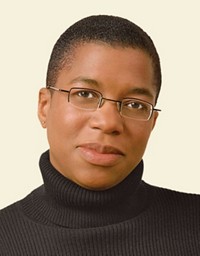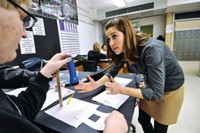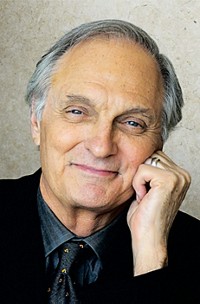Advertisement
Grab your lab coat. Let's get started
Welcome!
Welcome!
Create an account below to get 6 C&EN articles per month, receive newsletters and more - all free.
It seems this is your first time logging in online. Please enter the following information to continue.
As an ACS member you automatically get access to this site. All we need is few more details to create your reading experience.
Not you? Sign in with a different account.
Not you? Sign in with a different account.
ERROR 1
ERROR 1
ERROR 2
ERROR 2
ERROR 2
ERROR 2
ERROR 2
Password and Confirm password must match.
If you have an ACS member number, please enter it here so we can link this account to your membership. (optional)
ERROR 2
ACS values your privacy. By submitting your information, you are gaining access to C&EN and subscribing to our weekly newsletter. We use the information you provide to make your reading experience better, and we will never sell your data to third party members.
Environment
Tech-Savvy Learning
October 29, 2007
| A version of this story appeared in
Volume 85, Issue 44
Funding of Science
The American Academy of Arts & Sciences has formed a committee to study alternative ways to identify, invest in, and manage high-risk, high-reward research and to further the research of early-career faculty. Spurring the study is a growing recognition that current federal funding mechanisms are not always supportive of high-risk, high-reward research and that many early-career scientists find it increasingly difficult to sustain their research after their start-up packages are exhausted. Nobel Laureate and Howard Hughes Medical Institute President Thomas R. Cech is leading the committee, which invites input from the public across all disciplines concerning alternative investment policies, federal funding mechanisms, and management processes that can improve the success of early-career scientists and of scientists with high-risk, high-reward research proposals. Please submit ideas, comments, and suggestions by Nov. 30 to John C. Crowley at jcrowley@mit.edu.or Katie Donnelly at kdonnelly@amacad.org.
"Wired for Learning" underscores the need for science communicators to take a lesson from teachers in embracing podcasts and other digital technology to better inform a younger, tech-savvy generation about the benefits of science (C&EN, Sept. 3, page 66). As the weekly voice of Science Elements (www.acs.org/pressroom), the new ACS Office of Communications podcast, I know how much iPods, blogs, and wikis are replacing traditional media as information sources among younger people.
Science Elements makes cutting-edge scientific discoveries from ACS journals and C&EN available to a broad public audience at no charge. Many nonscientists are reluctant consumers of information about new research discoveries, either due to time constraints or a scientific phobia. For them, information must be wrapped in a user-friendly package that connects with today's lifestyles. Podcasts are an ideal medium for reaching an increasingly large segment of today's society.
As a member of the ACS Committee on Public Relations & Communications, I know that podcasts are just one of several digital technologies that will grow in importance as we strive for a better informed public. ACS has a digital presence on YouTube (www.youtube.com/user/Ameri ChemSoc), where viewers can watch videos from the Boston meeting and video clips originally issued as part of press releases.
Finally, I would like to urge ACS members to investigate the uses and applications of "new media" in order to better educate the public about science. If we as experts don't provide scientific guidance, then the public is going to receive that information from less informed sources.
Steven K. Showalter
Albuquerque, N.M.
I'm responding to "Wired for Learning" with 36 years of teaching experience behind me, yet with something less than enthusiasm for the technology-savvy teachers who were profiled in the article. It has been my experience that today's teens know very little about modern technology except how to use it. They know almost zero about the science behind the technology. Most know nothing about electricity, don't know how AC differs from DC, and don't know what electromagnetic waves are or why their frequency matters. In fact, all they know about most of this technology is which buttons to push and in what order.
Making teens push more buttons than they already do does not make them wiser or more talented; it only gives them a warm feeling that they understand many things that they, in fact, do not understand.
One sentence struck me as particularly untrue in this piece: "For example, before computers became ubiquitous, when students were at home and got stuck on a homework problem, other than a phone call to a fellow student, they didn't have access to immediate help."
Are they all orphans? Don't they have parents? Isn't asking your parents a valuable learning path for today's youth? I asked my mother for help. My children asked me. My grandchildren ask their parents, and I presume my great-grandchildren will do the same. Surely, homework problems are about something that parents learned also. I hope the homework problems are not about which button to push. If so, the teacher's syllabus needs examining.
Enough said. Your readers will know what I am trying to express. I hope so, or my mother would be very displeased.
Roy W. Clark
Murfreesboro, Tenn.





Join the conversation
Contact the reporter
Submit a Letter to the Editor for publication
Engage with us on Twitter